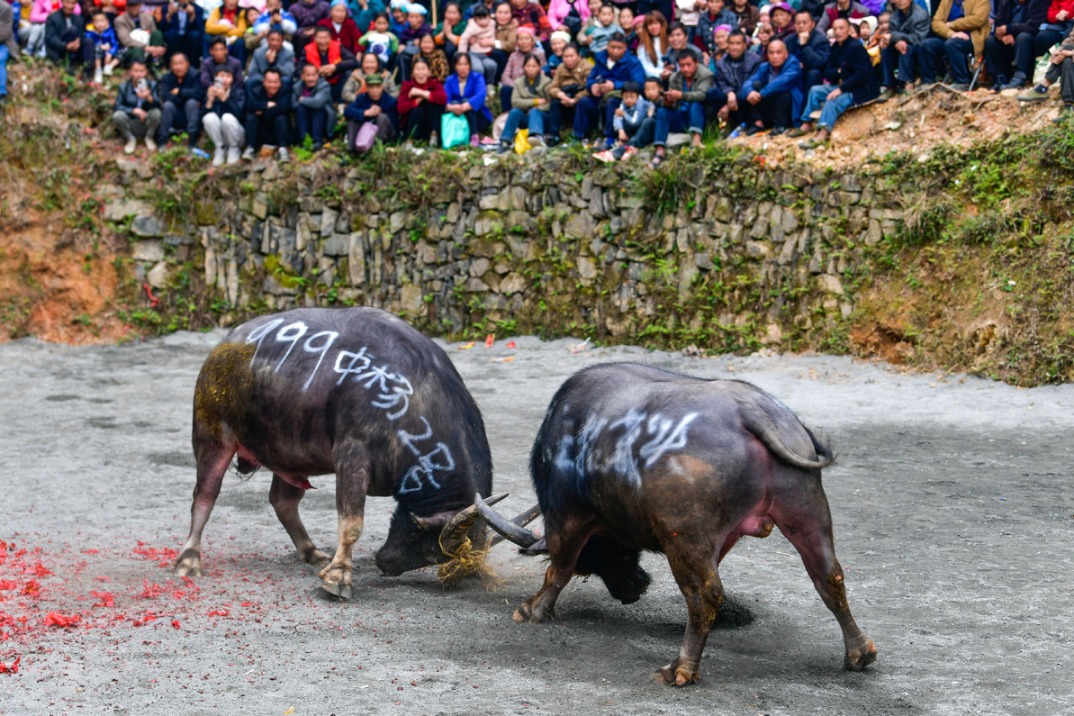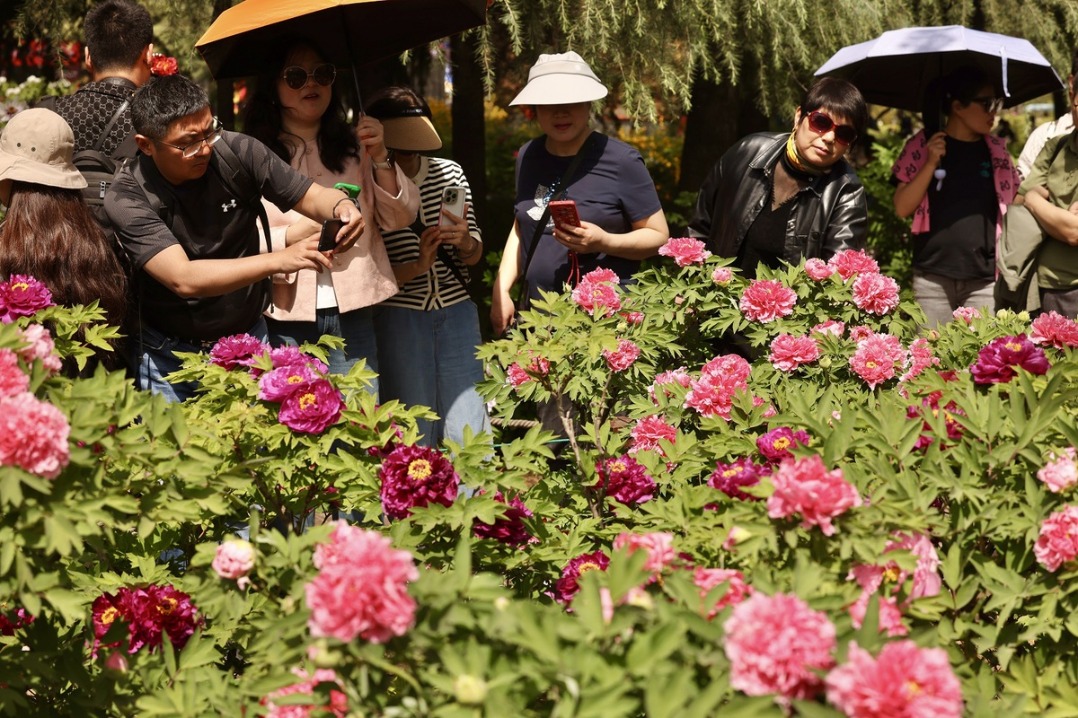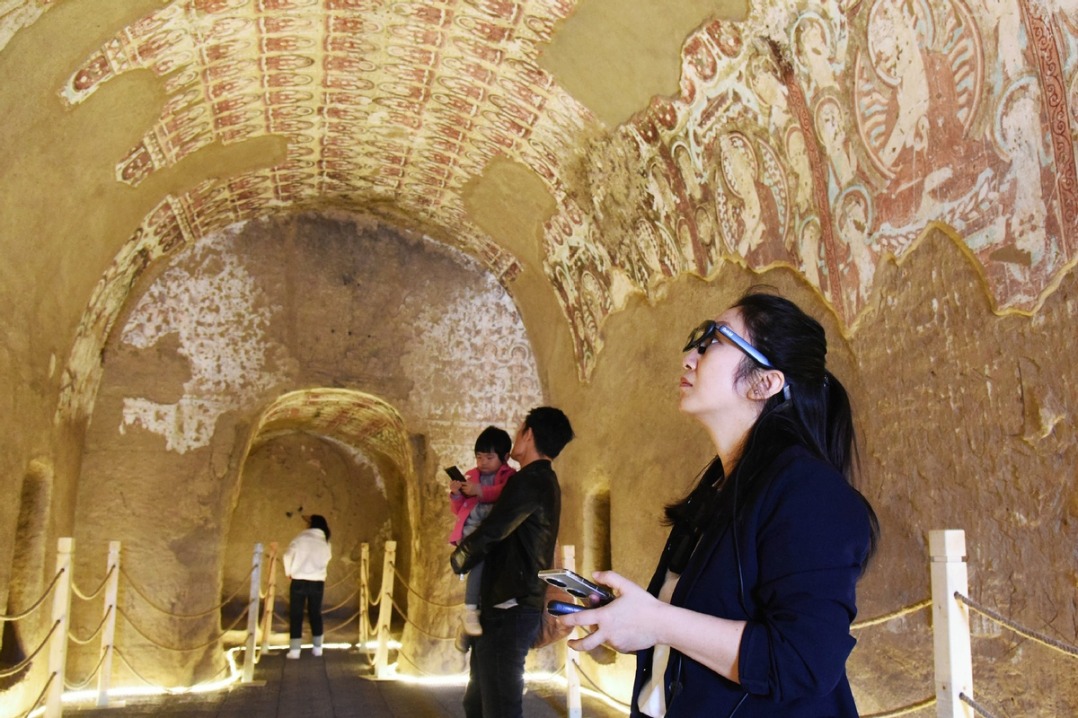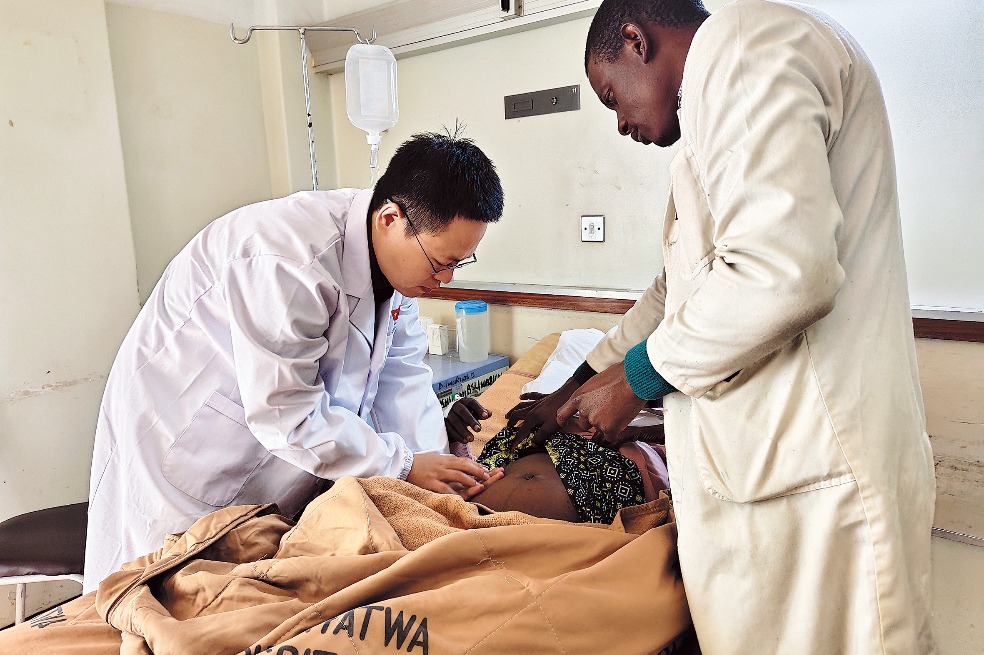Doctors play pivotal role in intl campaign
In partnership with UNICEF, Chinese medics help reduce child mortality rate

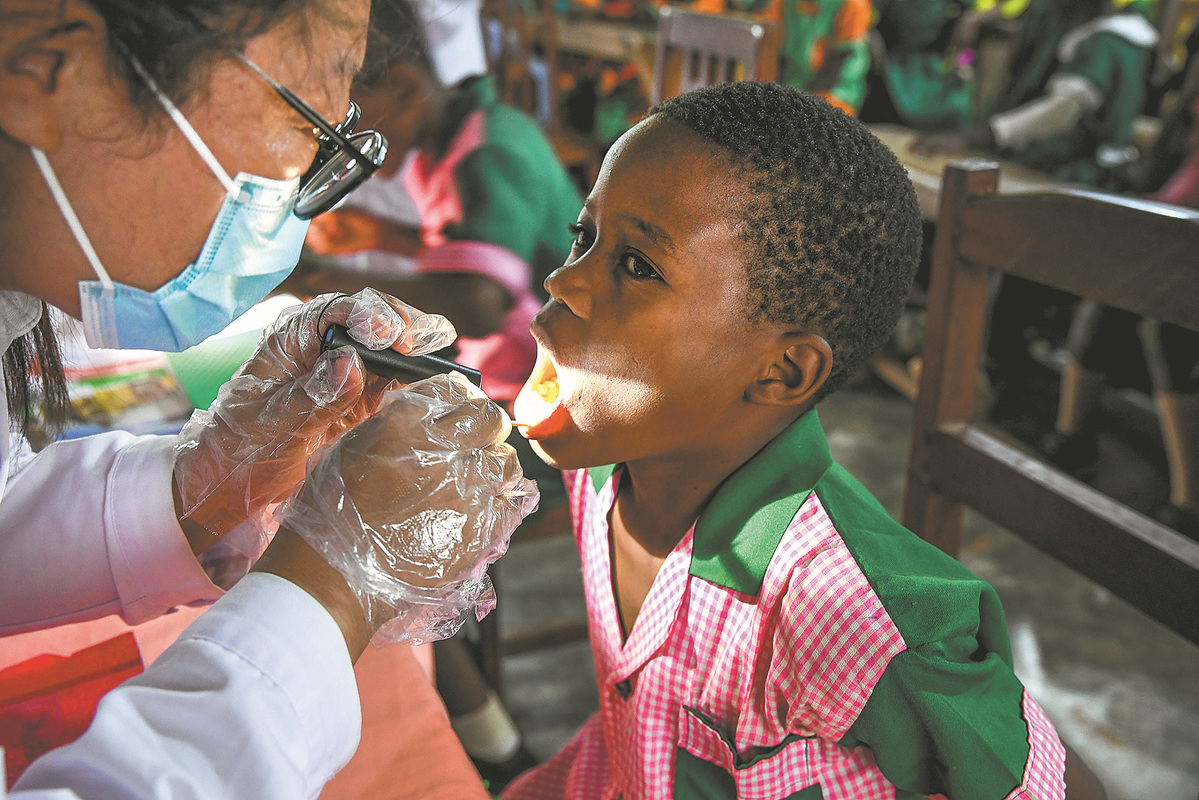
China has deployed 117 obstetric and pediatric doctors overseas to provide regular medical services for pregnant women and infants and help train local medical workers, the National Health Commission said on Monday.
Chinese medical aid teams delivered 63,800 newborns abroad last year, according to data released by the commission during an event in Beijing marking World Health Day, which this year spotlights maternal and newborn health.
With four-fifths of deaths among children under age 5 occurring in sub-Saharan Africa and South Asia, China has assisted in 100 campaigns related to maternal and child health in developing countries and worked with UNICEF to carry out health programs targeting pregnant women, newborns and children in eight African nations, Health Minister Lei Haichao said at the event.
China also proposed establishing an alliance of Chinese and African hospitals last year and jointly building medical centers with African partners to further support local healthcare, Lei said.
Amanda Bissex, UNICEF's deputy representative to China, said the annual number of children worldwide dying before age 5 has dropped by more than half since 2000, while the annual number of stillbirths has fallen by over a third. In 2022, the number of child deaths fell slightly below 5 million for the first time.
However, the pace of progress is slowing across the world, as the annual rate of reduction in the mortality of children under age 5 declined from 3.7 percent between 2000 and 2015 to 2.2 percent from 2015 to 2023, she said.
Bissex also noted that the children are particularly vulnerable to risks resulting from climate change, including extreme weather and water and food shortages, as well as rising threats from infectious diseases such as dengue fever and Japanese encephalitis.
China has supported the establishment of a center for reproductive medicine in Mali, where the first test-tube baby born at a public hospital was delivered last year, according to the commission.
The country has also helped build a cervical disease screening center in South Sudan, serving nearly 4,000 people so far. In Sierra Leone, Chinese medical aid teams have conducted human papillomavirus screening programs at local medical institutions.
Duo Lin, a physician at Fuwai Yunnan Hospital under the Chinese Academy of Medical Sciences, said that over the past seven years, he and other medical aid workers have screened children for congenital heart defects across 11 provincial-level regions in Cambodia.
"During our mission in Cambodia, we used to screen 2,000 children in a single day. By nightfall, our ears would feel painful, itchy and wet from constant use of stethoscopes," he said. "But it is our responsibility as Chinese doctors to listen to heartbeats, and nothing is more fulfilling than seeing a child regain health."
Chinese medical aid teams have also trained local medical staff and students and donated 40 mobile medical vehicles to Cambodia, Duo said.
Official data shows that China ranks among the top upper-middle-income countries in key maternal and child health indicators. The maternal mortality rate in China fell to 14.3 per 100,000 live births last year. The infant mortality rate dropped to four per 1,000 live births, while the mortality rate for children under age 5 declined to 5.6 per 1,000 live births.
During the three years of the COVID-19 pandemic, China's maternal mortality rate maintained an average annual decrease of about 4 percent, the commission said.
China now has nearly 3,500 critical care centers for pregnant women and more than 3,200 for newborns.


















